Leonardo Stella
Experience-replay Innovative Dynamics
Jan 21, 2025



Abstract:Despite its groundbreaking success, multi-agent reinforcement learning (MARL) still suffers from instability and nonstationarity. Replicator dynamics, the most well-known model from evolutionary game theory (EGT), provide a theoretical framework for the convergence of the trajectories to Nash equilibria and, as a result, have been used to ensure formal guarantees for MARL algorithms in stable game settings. However, they exhibit the opposite behavior in other settings, which poses the problem of finding alternatives to ensure convergence. In contrast, innovative dynamics, such as the Brown-von Neumann-Nash (BNN) or Smith, result in periodic trajectories with the potential to approximate Nash equilibria. Yet, no MARL algorithms based on these dynamics have been proposed. In response to this challenge, we develop a novel experience replay-based MARL algorithm that incorporates revision protocols as tunable hyperparameters. We demonstrate, by appropriately adjusting the revision protocols, that the behavior of our algorithm mirrors the trajectories resulting from these dynamics. Importantly, our contribution provides a framework capable of extending the theoretical guarantees of MARL algorithms beyond replicator dynamics. Finally, we corroborate our theoretical findings with empirical results.
An Evolutionary Framework for Connect-4 as Test-Bed for Comparison of Advanced Minimax, Q-Learning and MCTS
May 26, 2024Abstract:A major challenge in decision making domains with large state spaces is to effectively select actions which maximize utility. In recent years, approaches such as reinforcement learning (RL) and search algorithms have been successful to tackle this issue, despite their differences. RL defines a learning framework that an agent explores and interacts with. Search algorithms provide a formalism to search for a solution. However, it is often difficult to evaluate the performances of such approaches in a practical way. Motivated by this problem, we focus on one game domain, i.e., Connect-4, and develop a novel evolutionary framework to evaluate three classes of algorithms: RL, Minimax and Monte Carlo tree search (MCTS). The contribution of this paper is threefold: i) we implement advanced versions of these algorithms and provide a systematic comparison with their standard counterpart, ii) we develop a novel evaluation framework, which we call the Evolutionary Tournament, and iii) we conduct an extensive evaluation of the relative performance of each algorithm to compare our findings. We evaluate different metrics and show that MCTS achieves the best results in terms of win percentage, whereas Minimax and Q-Learning are ranked in second and third place, respectively, although the latter is shown to be the fastest to make a decision.
Digital Twinning Remote Laboratories for Online Practical Learning
Dec 13, 2021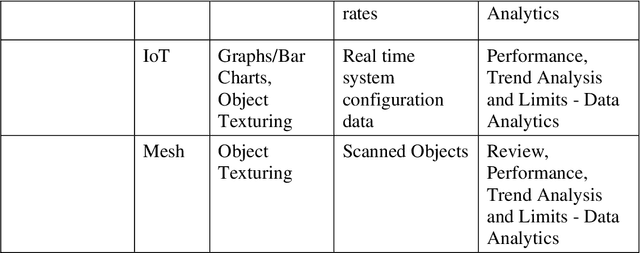
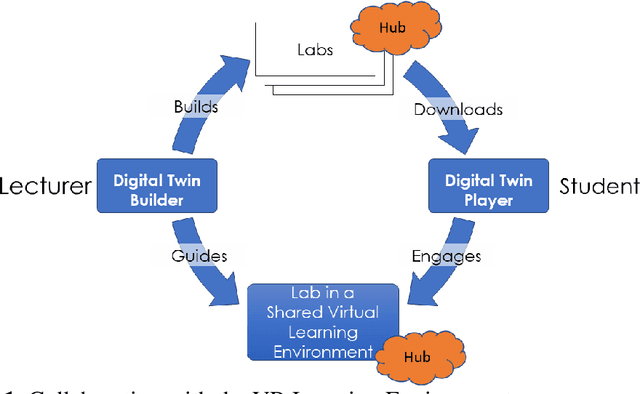

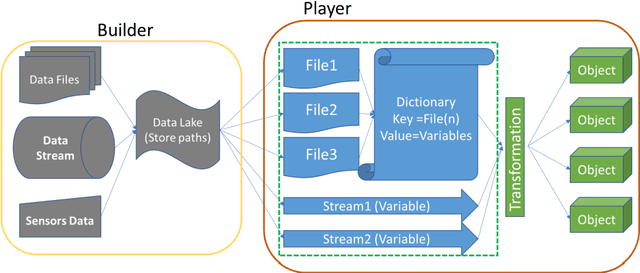
Abstract:The COVID19 pandemic has demonstrated a need for remote learning and virtual learning applications such as virtual reality (VR) and tablet-based solutions. Creating complex learning scenarios by developers is highly time-consuming and can take over a year. It is also costly to employ teams of system analysts, developers and 3D artists. There is a requirement to provide a simple method to enable lecturers to create their own content for their laboratory tutorials. Research has been undertaken into developing generic models to enable the semi-automatic creation of a virtual learning tools for subjects that require practical interactions with the lab resources. In addition to the system for creating digital twins, a case study describing the creation of a virtual learning application for an electrical laboratory tutorial has been presented.
Virtual Reality based Digital Twin System for remote laboratories and online practical learning
Jun 17, 2021

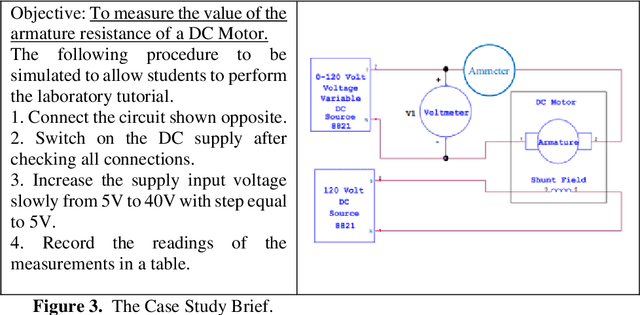
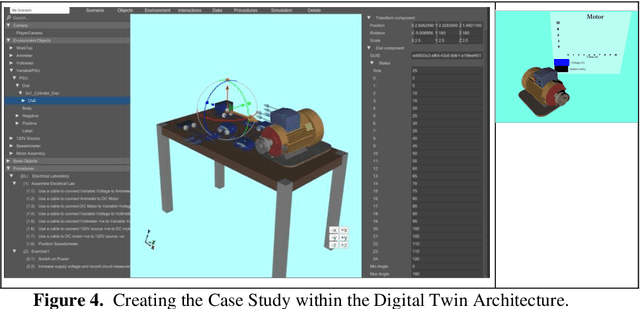
Abstract:There is a need for remote learning and virtual learning applications such as virtual reality (VR) and tablet-based solutions which the current pandemic has demonstrated. Creating complex learning scenarios by developers is highly time-consuming and can take over a year. There is a need to provide a simple method to enable lecturers to create their own content for their laboratory tutorials. Research is currently being undertaken into developing generic models to enable the semi-automatic creation of a virtual learning application. A case study describing the creation of a virtual learning application for an electrical laboratory tutorial is presented.
 Add to Chrome
Add to Chrome Add to Firefox
Add to Firefox Add to Edge
Add to Edge